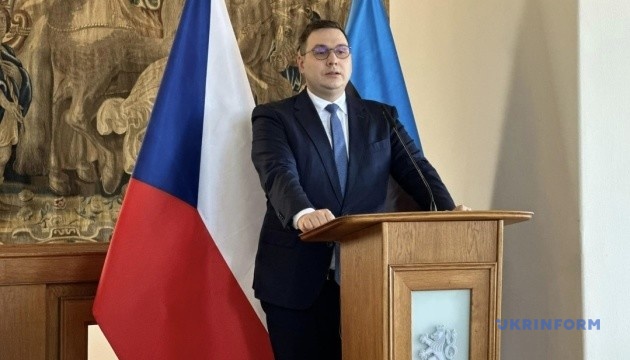Czechia to probe firms accused of arming Russia

Czech counterintelligence will investigate domestic companies allegedly involved in exporting machinery to Russia for weapons manufacturing. The Czech Security Information Service (BIS) says it will act once official information is provided, according to iRozhlas.
On 21 June, Zelenskyy told reporters that Russia continues receiving machine tools from foreign companies, including eight based in the Czech Republic. He said these tools are used for weapons manufacturing. Though he withheld specific names, Zelenskyy stated he knows the companies involved and urged sanctions against them.
BIS awaits official list, doubts direct Czech exports
BIS spokesperson Ladislav Šticha told iRozhlas that Czech authorities have yet to receive any official list of the companies Zelenskyy mentioned.
“It is therefore very difficult to comment on which companies and goods are involved,” Šticha stated.

Czech firms secretly shipped machine tools to Russia — even during war, investigation finds
According to him, hundreds of companies are attempting to export to Russia. Šticha added that many of the now-embargoed items were exported before Russia’s full-scale invasion of Ukraine in 2022, when such trade was still legal.
BIS believes it is “almost certain” none of the cases involve direct exports from the Czech Republic to Russia, as such transfers require a license and could not legally cross borders otherwise.
Third-country reexports suspected
Šticha suggested that it could be goods delivered legally before 2022 or re-exported via other countries. In some cases, companies may have sold products to “safe” nations, including EU members, not realizing they would be reexported to Russia.
“Firms often argue they were unaware of subsequent resales, and it’s very difficult to prove otherwise,” Šticha noted.
Recently, Ukrainska Pravda reported that the Czech company Leseft International s.r.o., located in Ostrava, may have been involved in delivering components used in Russian rockets. Šticha declined to comment directly but confirmed:
“This company is not unknown to us.”
Sanctions evasion
According to Šticha, BIS handles dozens of cases annually where companies attempt to bypass sanctions by routing embargoed items through complex export networks. The agency cooperates with other state institutions and foreign partners to intercept such attempts.
Šticha stressed that the number of state experts is too small compared to the volume of companies attempting to skirt sanctions.
Last week, Czech Foreign Minister Jan Lipavský stated that based on Ukrainian-provided information, Czech authorities have found no indicators confirming the transfer of dual-use items to Russia.
